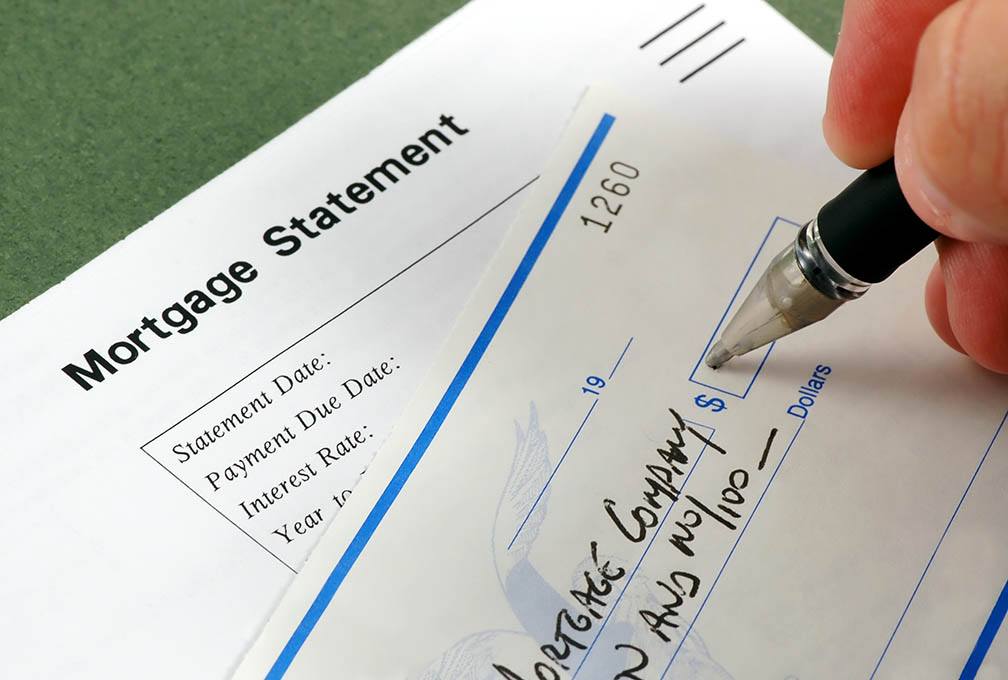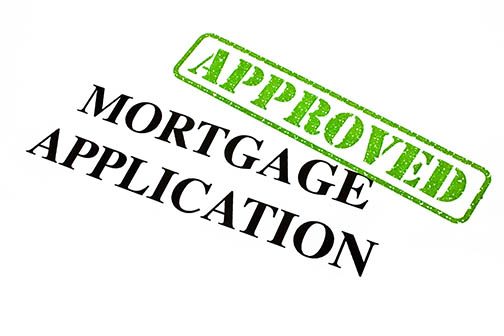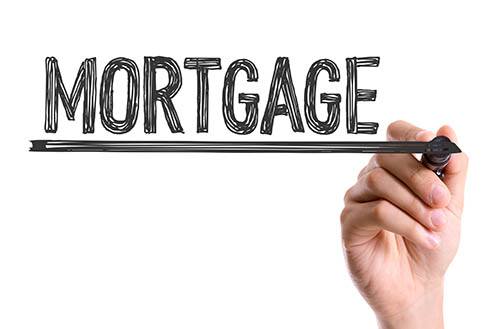 Last week’s economic releases included readings on new home sales, pending home sales and Case-Shiller Home Price Indices. Construction spending and consumer sentiment reports were also released, along with weekly readings on average mortgage rates and new jobless claims.
Last week’s economic releases included readings on new home sales, pending home sales and Case-Shiller Home Price Indices. Construction spending and consumer sentiment reports were also released, along with weekly readings on average mortgage rates and new jobless claims.
New Home Sales Drop in January
New home sales were reported at a seasonally-adjusted annual rate of 593,000 sales in January according to the Commerce Department. Analysts expected a rate of 693,000 sales based on December’s upwardly revised rate of 643,000 sales of new homes. January’s reading was 7.80 percent lower than for December; January’s reading was one percent lower than for January of 2017.
The average price of a new home was $323,000, which was 2.40 percent higher than for January 2017. The current supply of new homes for sale is 15 percent higher year-over-year, which is expected to ease low inventories of available homes.
Meanwhile, pending home sales were 4.70 percent lower in January than for December, which was unchanged as compared to November. Analysts said that sales activity, which is typically slow in January, was not likely a concern overall.
Case-Shiller Reports Higher Home Prices in December
Home prices were 6.30 percent higher year-over -year in December according to Case-Shiller’s 20-city home price index and were 0.60 percent higher month-to-month. The top three cities leading year-over-year home price growth were Seattle, Washington at 12.70 percent, Las Vegas, Nevada with 11.10 percent growth and San Francisco, California with 9.20 percent growth in home prices.
None of the 20 cities in the index saw home prices fall in 2017 even after adjustments for inflation.
Construction spending was unchanged in January as compared to analyst estimates of 0.40 percent growth in spending. Builders cited concerns over higher materials prices and shortages of lots and skilled labor. Winter weather was also a factor in lower construction spending.
Mortgage Rates Rise New Jobless Claims Fall
Freddie Mac reported higher average rates for fixed rate mortgages last week; rates for 5/1 adjustable rate mortgages were lower on average. Mortgage rates for a 30-year fixed rate mortgage averaged three basis points higher at 4.43 percent. Rates for a 15-year fixed rate mortgage averaged 3.90 percent and were five basis points higher.
The average rate for a 5/1 mortgage was three basis points lower at 3.62 percent. Discount points averaged 0.50 percent for fixed rate mortgages and 0.40 percent for 5/1 adjustable rate mortgages. Mortgage rates rose for the eighth consecutive week, which caused concerns about affordability for first time and moderate-income home buyers. Combined effects of rapidly rising home prices and higher mortgage rates may sideline buyers.
New jobless claims fell by 10,000 to 210,000 first-time claims filed last week. Analysts expected 226,000 new claims based on the prior week’s reading of 220,000 new claims filed. In other news, the University of Michigan reported a lower reading for consumer sentiment in February with an index reading of 99.7 against an expected reading of 100.0 and January’s reading 0f 99.9.
What‘s Ahead
This week’s scheduled economic news includes multiple readings from the labor sector along with weekly reports on mortgage rates and new jobless claims.
 Last week’s economic releases included minutes from the most recent FOMC meeting, a report on January sales of pre-owned homes and weekly readings on mortgage rates and new jobless claims.
Last week’s economic releases included minutes from the most recent FOMC meeting, a report on January sales of pre-owned homes and weekly readings on mortgage rates and new jobless claims. Last week’s weeks economic releases included readings on the NAHB Housing Market Index, housing starts and building permits issued and consumer sentiment. Weekly readings on mortgage rates and new jobless claims were also released.
Last week’s weeks economic releases included readings on the NAHB Housing Market Index, housing starts and building permits issued and consumer sentiment. Weekly readings on mortgage rates and new jobless claims were also released. Jerome “Jay” Powell was sworn in as Chair of the Federal Reserve amidst wild fluctuations in U.S. stock markets. Analysts attributed sliding stock prices to fears over inflation.
Jerome “Jay” Powell was sworn in as Chair of the Federal Reserve amidst wild fluctuations in U.S. stock markets. Analysts attributed sliding stock prices to fears over inflation. The post-election period is often one of uncertainty, and the time since the 2016 election has been no different with regards to market force and the financial world. With a new administration taking office, there are many questions regarding how Donald Trump’s presidency will impact the market and your mortgage. If you’re wondering what the predictions are for the coming year, here are a few things the experts are considering.
The post-election period is often one of uncertainty, and the time since the 2016 election has been no different with regards to market force and the financial world. With a new administration taking office, there are many questions regarding how Donald Trump’s presidency will impact the market and your mortgage. If you’re wondering what the predictions are for the coming year, here are a few things the experts are considering. When it comes to real estate, there are always going to be upswings in the market that will have an impact on your mortgage payment and overall financial health. However, with a fluctuating market here to stay, you may be wondering how you can guard your biggest investment and your finances against rate increases. If you’re concerned about rates on the rise, here are a few tips to test out you’re fiscal well-being.
When it comes to real estate, there are always going to be upswings in the market that will have an impact on your mortgage payment and overall financial health. However, with a fluctuating market here to stay, you may be wondering how you can guard your biggest investment and your finances against rate increases. If you’re concerned about rates on the rise, here are a few tips to test out you’re fiscal well-being. Whether they’re found online or heard from family and friends, there are so many mortgage tips out there that it can be hard to know exactly how to proceed. But, if you’re new to the market, there are a few surefire things you can do to get a mortgage rate you’ll feel good about. For some of the best tips on getting a great loan, look no further than the following.
Whether they’re found online or heard from family and friends, there are so many mortgage tips out there that it can be hard to know exactly how to proceed. But, if you’re new to the market, there are a few surefire things you can do to get a mortgage rate you’ll feel good about. For some of the best tips on getting a great loan, look no further than the following. There is always uncertainty in the market in an election year, but many people are wondering exactly what kind of impact Donald Trump’s election will have on their mortgage and the real estate options available. Whether you are still paying off your home or have been shopping around for the right one, here are some possibilities for the real estate market following the results of the 2016 election.
There is always uncertainty in the market in an election year, but many people are wondering exactly what kind of impact Donald Trump’s election will have on their mortgage and the real estate options available. Whether you are still paying off your home or have been shopping around for the right one, here are some possibilities for the real estate market following the results of the 2016 election. For many homebuyers who are new to the market, it can be very comforting to be on a fixed rate mortgage where fluctuating interest rates cannot have an impact on your monthly payments. While a variable rate mortgage can sometimes lead to significant savings at the end of the day, there are a few ways you can tell if your monthly payment is on the upswing.
For many homebuyers who are new to the market, it can be very comforting to be on a fixed rate mortgage where fluctuating interest rates cannot have an impact on your monthly payments. While a variable rate mortgage can sometimes lead to significant savings at the end of the day, there are a few ways you can tell if your monthly payment is on the upswing. Making the decision to purchase a home is one of the most significant investments most people will make in their life, and this automatically means there are a lot of questions that need to be answered before putting any money down. If you’re considering making the leap, here are some insights into some of the common questions you might have.
Making the decision to purchase a home is one of the most significant investments most people will make in their life, and this automatically means there are a lot of questions that need to be answered before putting any money down. If you’re considering making the leap, here are some insights into some of the common questions you might have.